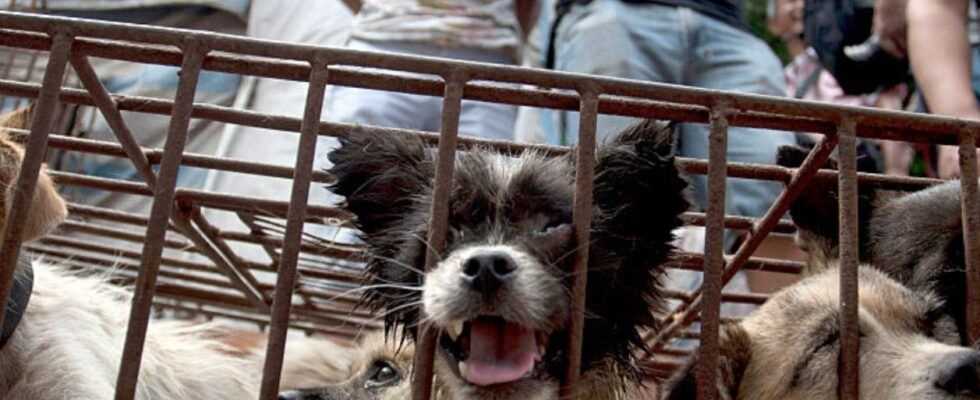Attempts by the Chinese government have failed to stop this outrageous traditional festival.
Sunday June 21, 2020, opened in Yulin, in the south of China, the dog meat festival, over ten days, yes, you read that right. This cultural event for many offers visitors many stalls where dishes based on felines or canines are served. Vendors also offer live animals crammed into cages. Scalded alive (in order to preserve the taste of the meat) or killed with a stick before being consumed, the horrors perpetrated are indescribable. These are so 3,000 dogs killed (against 15,000 in 2010), according to the 30 Million Friends Foundation.
From year to year, associations try to close this festival but it unfortunately holds up.
In an attempt to save as many dogs as possible from slaughterhouses, activists go to Yulin to buy them and give them a second life.
According to figures from the Human Society International (HSI), "only" 20% of Chinese eat meat from these animals and 72% of residents of Yulin say they do not eat it.
China and especially the young generation is desperately trying to move away from this reputation as "dog eaters". Recall that Beijing has officially removed dogs and cats from the list of edible and exploitable animals for their fur or medicinal properties. In 2016, a survey requested by the Chinese group China Animal Welfare Association in collaboration with HSI, insisted that "64 % of Chinese people want the Festival to end. "
And the risk of Covid-19 then?
This festival can further spark controversy in a global health crisis where the consumption of wild animals, this time, was suspected to be at the origin of the spread of the new coronavirus. And the non-health safety rules in this market are really risk factors for contagion.
"If the animal is infected with a virus and is slaughtered or cut up close to the public, there is a real risk of transmission. And this risk is higher than when an animal is slaughtered in a slaughterhouse." UCLouvain Professor of Virology, Jean Ruelle, at RTBF.
"I hope that Yulin will change, not only for the good of the animals, but also for the health and safety of its inhabitants," said Peter Li, member of an animal rights group, quoted by the South China Morning Post.
